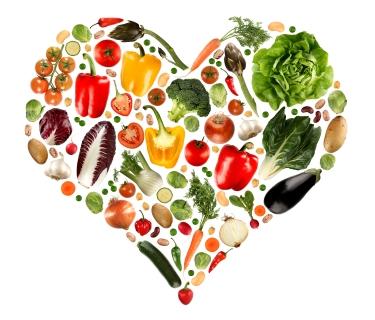Are vegans, vegetarians more prone to strokes?
A new study reveals concerning statistics

PHOTO: FILE
The paper, published in BMJ, found a small increase in the risk of stroke, while confirming findings in other studies that vegetarians and vegans may have a lower risk of heart disease than meat-eaters.
“It’s important to emphasise that we’ve looked at two outcomes here,” said co-author Tammy Tong, a nutritional epidemiologist in the University of Oxford’s Nuffield Department of Population Health. “The lower risk of heart disease does seem to outweigh the higher risk of stroke.”
 PHOTO: FILE
PHOTO: FILEPlus, both effects were fairly small. Based on their data, the researchers estimate that vegetarian diets — compared to meaty ones — are associated with 10 fewer cases of heart disease per 1,000 people over 10 years and three more strokes in the same population.
To reach that finding, Tong and her colleagues collected dietary, health and demographic data from about 48,000 British adults without any heart problems, about 24,400 of whom ate meat and 7,500 of whom ate fish but not meat. The remaining people were either vegetarians or vegans, grouped together for the purposes of the study.
The researchers monitored these individuals for 18 years, asking them to complete another detailed dietary survey toward the end of the study. Over time, about 2,800 people developed heart disease and about 1,100 had a stroke. Approximately 96% of people who began the study eating meat still did by the second dietary questionnaire, while 73% of vegetarians were still following a vegetarian or vegan diet.
 PHOTO: FILE
PHOTO: FILEAfter adjusting for factors like lifestyle and demographic characteristics, the researchers found a 20% higher rate of stroke among people who either began or ended the study as vegetarians compared to meat eaters. However, there was a 13% lower rate of heart disease among vegetarians (and fish eaters) compared to those who eat meat.
Is combing Keto with intermittent fasting good for you?
Since “stroke is much rarer than heart disease,” the lower risk of heart disease may actually be more impactful, Tong said.
The results may be surprising, given the years of research that have encouraged people to limit consumption of meat, particularly red and processed varieties.
A recent flurry of studies, for example, found heart-health benefits associated with plant-based diets — and health risks associated with those heavy in meat.
 PHOTO: FILE
PHOTO: FILEBut Tong’s isn’t the first study to find an uptick in stroke rates among vegetarians and vegans. Some prior research suggests that the same low cholesterol levels that protect people from heart disease may put them at greater risk of having a stroke.
Other papers posit that nutritional deficiencies common among those who don’t eat meat — like low levels of vitamin B12, vitamin D, amino acids and fatty acids — could put them at risk, Tong explained.
Still, Tong emphasizes that no one should drastically change their habits based on the results of one observational study which, by nature, can only uncover trends, not prove cause and effect. Overall, more studies are needed, Tong added.
Have something to add to the story? Share it in the comments below.



















COMMENTS
Comments are moderated and generally will be posted if they are on-topic and not abusive.
For more information, please see our Comments FAQ